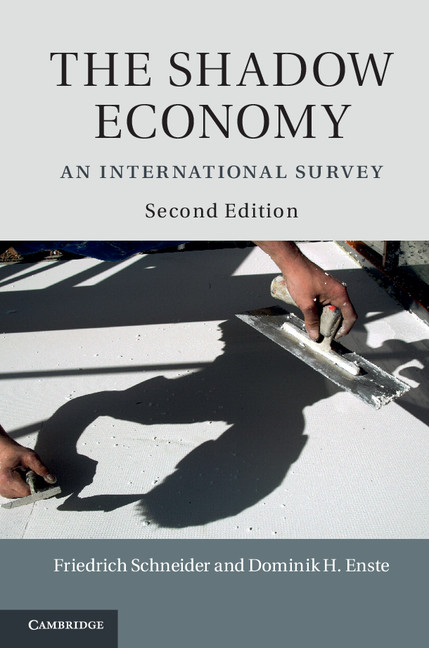The Shadow Economy
Illicit work, social security fraud, economic crime and other shadow economy activities are fast becoming an international problem. This second edition uses new data to reassess currency demand and the model approach to estimate the size of the shadow economy in seventy-six developing, transition and OECD countries. This updated edition argues that during the 2000s the average size of a shadow economy varied from 19% of GDP for OECDs, to 30% for transition countries and 45% for developing countries. It examines the causes and consequences of this development using an integrated approach explaining deviant behavior, which combines findings from economic, sociological and psychological research. The authors suggest that increasing taxation, social security contributions, rising state regulatory activities and the decline of the tax morale are all driving forces behind this growth and they propose a reform of state public institutions in order to improve the dynamics of the official economy.
- Proposes new estimates of the size and development of the shadow economies all over the world
- Presents a sound theoretical and empirical analysis of causes of the shadow and its interaction with the official economy
- A simple two-pillar strategy suggests how politicians can improve economic performance
Reviews & endorsements
'This second edition (incorporating the most recent data) is highly recommended; it is THE book on the shadow economy.' Bruno S. Frey, Distinguished Professor of Behavioural Science, University of Warwick
'Shadow economy hides behind official labor and business. Boundaries between the official and unofficial economy are fuzzy and research scholars engage in lively debates about the validity of methods to estimate the size of shadow economy. This book provides an excellent theoretical frame to investigate shadow economy from a socio-economic perspective and highly relevant empirical data which allow (the reader) to draw practical conclusions for political interventions to combat growing economic crime.' Erich Kirchler, University of Vienna
'The authors ingeniously measure the non-measurable and remove the shadows from our economies. Great research, great book.' Hans-Werner Sinn, President, Ifo Institute for Economic Research
'The welfare of nations cannot be judged without understanding the size of the informal sector. This extremely valuable contribution provides a rigorous treatment of the subject and will become the standard reference book of the shadow economy.' Klaus F. Zimmermann, University of Bonn and Director of IZA, the Institute for the Study of Labor
Product details
April 2013Hardback
9781107034846
226 pages
229 × 152 × 14 mm
0.45kg
30 b/w illus.
Available
Table of Contents
- 1. The shadow economy: a challenge for economic and social policy
- 2. Defining the shadow economy
- 3. Methods to estimate the size of the shadow economy
- 4. Size of shadow economies around the world
- 5. The size of the shadow economy labour force
- 6. An integrated approach to explain deviant behaviour
- 7. Analysing the causes and measures of economic policy
- 8. Effects of the increasing shadow economy
- 9. The 'two-pillar strategy'
- 10. Conclusion and outlook.










